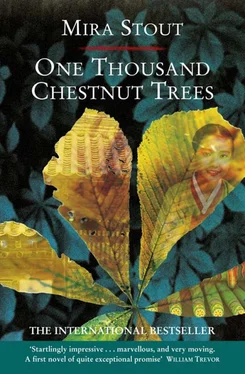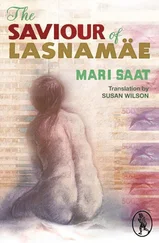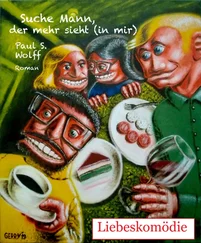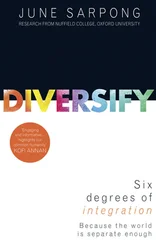As the rise of a steep hill loomed up before us on the bicycle, I saw that familiar stretch of the road which led to the green gates of our estate; a view that was the most beautiful I have known. The wing-tipped lilt of the tiled roof-gates made my heart swoop upwards, for within the walls of the estate lay what I can only call happiness. Years later, the silhouette of those gates is still scarred in my memory with the burning iron of loss.
At this point in the road I descended from the bicycle, and walked with my father the rest of the way, shaded by an avenue of gingko trees. Soon the gravel drive forked, and we took the right turning to our farmhouse on the crest of a hill, while the road continued to the left, leading eventually to the grand main house, a mansion, where my eldest uncle, Yong-lae, lived with his family, along with Baby Uncle, who was still a bachelor.
My grandfather, Lord Min, was now dead. I remember him only slightly, but those impressions cast a giant shadow. He was a splendid, rather mythical figure in his red silk court robes, carried aloft by serfs in his sedan chair. At home, he had been no less awe-inspiring in his high black horsehair hat, with his long white beard and gray silk robes. He moved slowly, and walked with a silver-topped cane, a gift from the King.
Grandfather had been the last of the jinsas in the family; jinsa was a yangban imperial scholar’s title, now obsolete, bestowed on him by the late King Kojong. Grandfather had been a courtier to the King in Seoul, and was also a distant cousin of the Queen. But Lord Min – Gong-ju was his first name – was too ambitious for the King’s liking. My grandfather’s private armies exceeded the royal quota, and with some relish, the King exiled him to his Northern estate until his death.
At the time of his marriage, my grandfather had a vivid dream of three birds flying. His wife later gave birth to three sons: Yong-lae (Dragon arriving), Bong-lae – my father (Phoenix arriving), and Gong-lae (Peacock arriving). That he should have had so poetic a premonition was said to be typical of him. He also fathered two daughters, but being female, my aunts had merited no such privileged iconography in my grandfather’s dreams.
People spoke of Grandfather as if he were a god, and we all were happy enough to go along with the indulgent descriptions. Min Gong-ju was princely, witty, a brilliant scholar of Chinese classics from the age of seven, a formidable poet and horseman, never seen merely riding on his white horse across the fields, always galloping. He was considered a good and merciful feudal lord. As a youth, he had been strikingly handsome: fair and rosy, with liquid hazel eyes and shiny amber-black hair. Noble Manchurian blood accounted for the European features of some of the Min clan. I remember his uproarious laugh, quite terrifying, coming from beneath his towering, solemn black horsehair scholar’s hat.
But at the end of his life, Grandfather was rarely even seen in public, much less laughing. When he went to the village he wore a Western Homburg low over his eyes so that no one would recognize him, so humiliated was he by the effects of the Japanese occupation, and our family’s disgrace.
It was Grandfather’s generation that had witnessed the fall of Korea: he had been alive when the rebel army was defeated by the Japanese, and had witnessed the dissolution of the entire Korean Armed Forces by the occupying militia. He had been at Court in Seoul when a group of government ministers had committed mass suicide in protest at Annexation; he had even seen the expression upon the King’s face when the Japanese Declaration was presented to him.
My grandfather stood by politely as Japanese police ransacked his personal library, confiscating heirloom history books and irreplaceable hand-calligraphed works of Korean poetry and ancient literature which had been declared subversive. Grandfather was made to watch as armed police burned his dearest books in a public bonfire, their wisdom vanishing in a column of destructive black smoke.
The takeover was a nightmarish echo of the Hideyoshi invasions of the sixteenth century, when Japan had systematically devastated Korea. Arson had been perpetrated on such a scale that virtually no building in Korea not constructed of masonry survived that invasion: even Kyongbok Palace, the royal residence, was burned to the ground, and later had to be rebuilt. All government buildings and royal libraries holding irreplaceable Yi Dynasty records were burned. Thousands of farmers and civilians had been slaughtered and their property destroyed by Japanese troops. The noses of twenty thousand Koreans had been sliced off their faces. Artisans, doctors, and printers had been captured and kidnapped, taken prisoner to Japan for their technological and medical expertise. Although despised and maltreated by the Japanese, they were never allowed to return home to Korea.
Now the descendants of those Japanese invaders were back in Seoul repeating their public book-burnings – eradicating virtually all of the country’s new historical and political texts, schoolbooks, and works of nationalist literature – and replacing them with their own accounts of Korean history. The Japanese literally rewrote our history, redrafting political events to diminish and excuse their atrocities, and teaching this sanitised version of history to Korean and Japanese schoolchildren. Lord Min was furious to learn that those children whose parents could not afford private education were deliberately being kept illiterate by the Japanese government, who had closed down over two thirds of the schools to this end. Knowing scholarship to be the cornerstone of Korean society, Grandfather said the Japanese could not have chosen a more cynical form of cultural strangulation. Cruder totalitarianism came in the banning of Korean newspapers and of public gatherings, and the changing of street signs from Hangul to Japanese.
Our family could not understand how it had been allowed to happen. The West made no moves to intervene. The League of Nations did not respond to our pleas. Forty years earlier the West had been virtually silent when Queen Min had been murdered in her own Palace by a mob of Japanese assassins, who had hacked her body to pieces with machetes and burned her still-living remains with kerosene in the Royal Gardens. Had the Japanese even attempted such an act on a European monarch, would Japan not have provoked a war, or at the very least been ostracized with sanctions by the world powers? The West’s appeasement had rocked my grandfather.
Millennia of civilization were being systematically destroyed by a Japan drunk on the liquor of new military and industrial power. The last vestiges of the Korean aristocracy were abrogated. Our country was finished, as far as Grandfather could see.
Grandfather had often said that the yangban class had brought the 1894 reforms upon themselves through gross abuse. Corrupt aristocrats used their rank as an excuse to do nothing all day but gossip, smoke pipes, play chess and practise archery. These reprobates still insisted that commoners dismount when meeting them on the road and when passing before a yangban house. For centuries yangbans had had the right to ignore tradesmens’ bills, to exact loans from farmers and neighbours, demand free labour from peasants and unlimited use of their cattle and horses, the right to free food and lodging at the homes of magistrates, and amnesty from the law except in rare cases of treason. Such blatant injustice was wrong and deserved to be abolished along with slavery, thought Grandfather, but he also felt strongly that the class structure ensured civilisation, and with reforms, should remain intact.
Lord Min did not like to understand the success of the Japanese; Japan was amoral, and yet it flourished. Right and wrong were reversed. How could the world be blind to their perfidy? He had said that the Japanese were only accepted by the West as civilized beings because they adopted European haircuts. He was partly serious. Even in such an outwardly trivial matter as hair dressing, he saw the contrasting character of Korea and Japan. Where the Japanese had passively accepted a daft government edict for all men to cut their hair short in the European fashion, in Korea, when the Japanese consul, Inoue, decreed a similar order for Korean men to cut off their topknots, it caused a national furore, and Korean ministers resigned their posts in protest. Although the King himself, out of diplomacy, finally adopted the edict, those Koreans who cut their hair in the country were beaten up in broad daylight by topknotted dissidents.
Читать дальше












